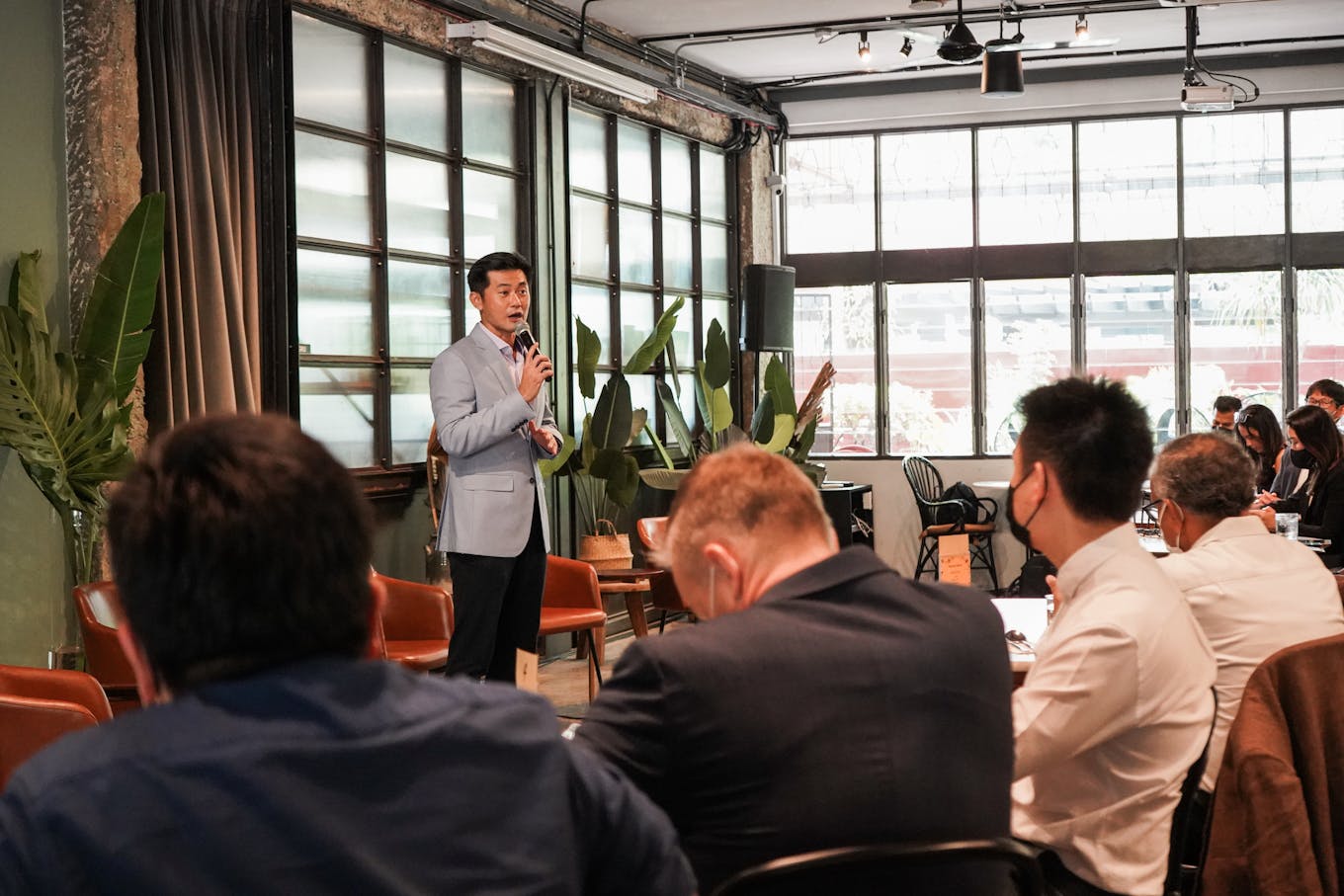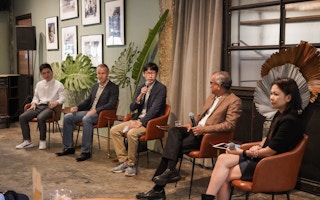EB Impact, the non-profit sister organisation of Eco-Business, launched the second edition of the Sustainability Exchange on Tuesday to challenge youths to work with experts in the field to fight climate change.
“We need to empower the youth to do something,” said Jessica Cheam, EB Impact board member and chair of the Climate Action SG Alliance at the launch event in Singapore, on Tuesday. “The time for awareness is over, what we need today is action,” said Cheam.
The three-month youth-mentorship programme is designed to help young people create solutions to some of city-state’s toughest sustainability challenges in a bid to advance the Singapore Green Plan, which was launched earlier this year.
Working with relevant mentors, youths will hammer out proposals in line with the Green Plan’s five pillars including: City in Nature, Energy Reset, Green Economy, Resilient Future and Sustainable Living.
“It is a good opportunity to learn, not just about the challenges, but also to have the important conversation of trade-offs of being in Singapore with the limited [land] resources,” said Desmond Tan, Singapore’s minister of State, Ministry of Sustainability and the Environment.
“I hope you will gain a better understanding of the underlying climate-related issues and necessary trade-offs in driving sustainability solutions,” Tan said. In Singapore, those trade-offs include switching to reliable, affordable renewable energy sources while weaning the country off its dependence on fossil fuels.

Desmond Tan, Minister of State, Ministry of Sustainability and Environment, Republic of Singapore speaking at the launch of the second edition of the Sustainability Exchange on 19 October, 2021. Image: Eco-Business
EB Impact has refined the programme since the first round by convening a steering committee to provide technical expertise and guidance to devise a set of problem statements to steer innovations.
One area of focus, coined ‘Energy Reset’, invites youths to think about how Singapore can reach net zero emissions with limited sources of renewable energy. Under ‘Sustainable Living’ — programme participants will tackle how to encourage a shift in behavioural change in Singapore and how it might be measured.
The initiative reflects growing calls from youths who are facing a future of extreme weather events due to climate change and are looking for ways to tackle it. Global youth movements have shown growing impatience with climate inaction from world leaders, including in Singapore, where young people first pushed for tougher action at the country’s first climate rally in 2019.
“Thirty years of blah, blah, blah,” Swedish environmental activist, Greta Thunberg told the opening session of a Youth4Climate event in Italy in September, saying much had been promised but little done to tackle global warming.
Asia will bear the brunt of climate change with many parts of the region facing increasing average temperatures, lethal heat waves, extreme wet weather, hurricanes and drought. Prominent figures in both the private and public sector have stressed the importance of scaling-up funding for technological solutions to help tackle the crisis.
Recognising this need, Facebook has, for a second year, pledged its support for the Exchange. “The youth are an important source of creativity, and they are well placed to develop innovative ideas to tackle emerging challenges,” said Daniel Lim, public policy manager, Facebook Singapore. “It is important that public-private partnerships empower them with industry-leading resources and knowledge.”
Eighty youths and 21 mentors participated in the pilot programme. Teams came up with solutions such as gamifying education on the foot print for food, tackling waste in the beauty industry and empowering millennial retail investors to overcome barriers in sustainable investing.
OCBC Bank will commit SG$100,000 (US$74,366) funding the top five selected projects under its #OCBCCares Environment Fund which focuses on identifying gaps where sustainable and strategic support is needed and funding projects that can directly mitigate climate change issues.
“No effort is too small, and no one is too young when it comes to taking action for the environment. It is all in our hands to act now – collectively – for a more sustainable future,” said Koh Ching Ching, OCBC head of Group Brand and Communications. “The solutions developed by the youths can spur results-driven action and encourage them to lead the climate change fight.”
The programme is supported by the Climate Action SG Alliance, and academic partners from the National University of Singapore, Nanyang Technological University (Centre for Business Sustainability), Singapore University of Social Sciences, Singapore Management University and Singapore Polytechnic.
“In Singapore…bringing greater awareness about the challenge and instilling responsible consumption among all of us is still the need of the hour,” said S. Viswanathan, professor of Operations Management and Corporate Sustainability at Nanyang Business School, Nanyang Technological University.
Interested mentors and youths are invited to apply for ‘Sustainability Exchange Season 2’ from today. The deadline for applications is on 30 November 2021.
To continue reading, subscribe to Eco‑Business.
There's something for everyone. We offer a range of subscription plans.
- Access our stories and receive our Insights Weekly newsletter with the free EB Member plan.
- Unlock unlimited access to our content and archive with EB Circle.
- Publish your content with EB Premium.








